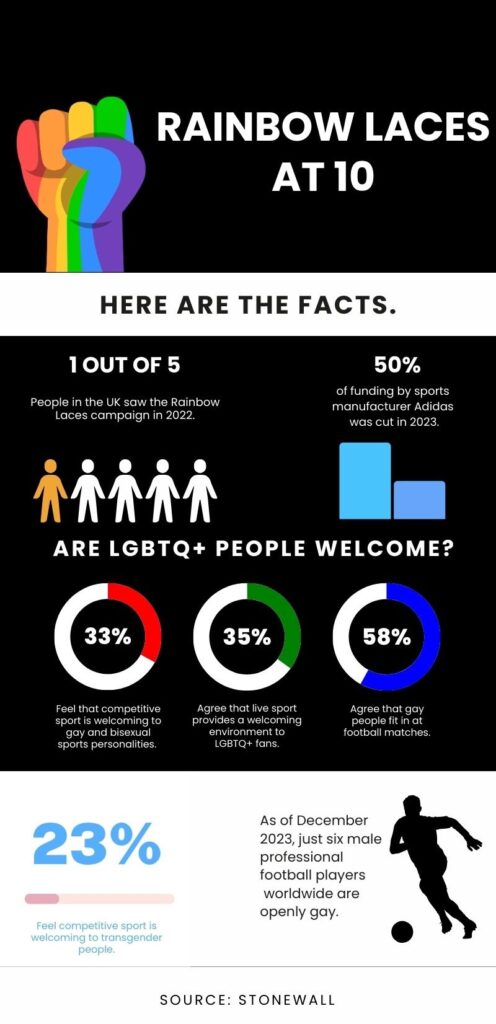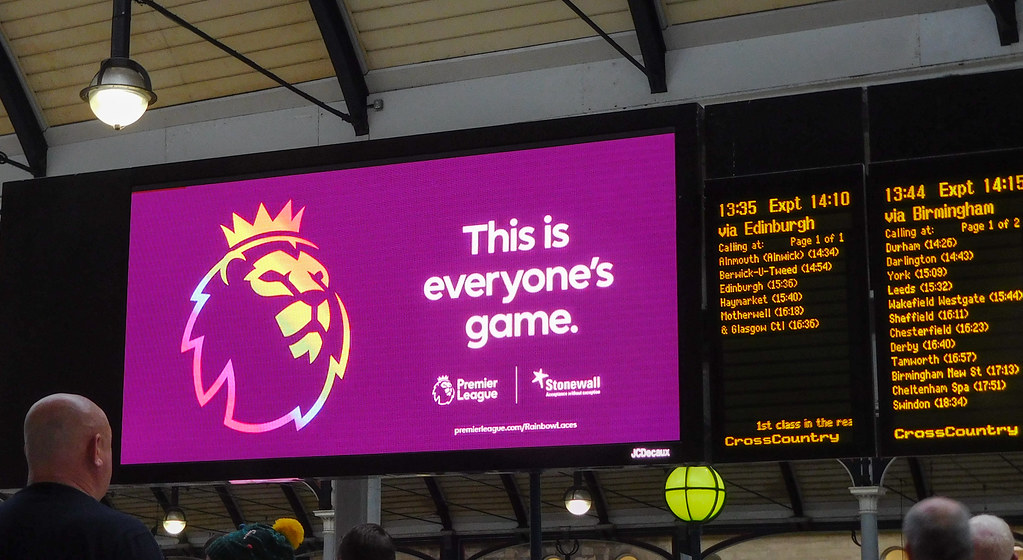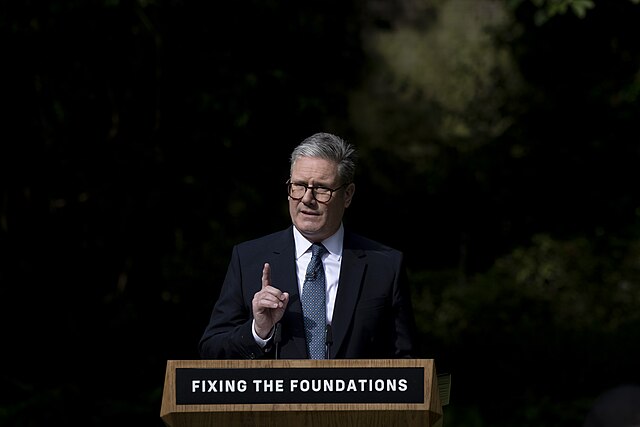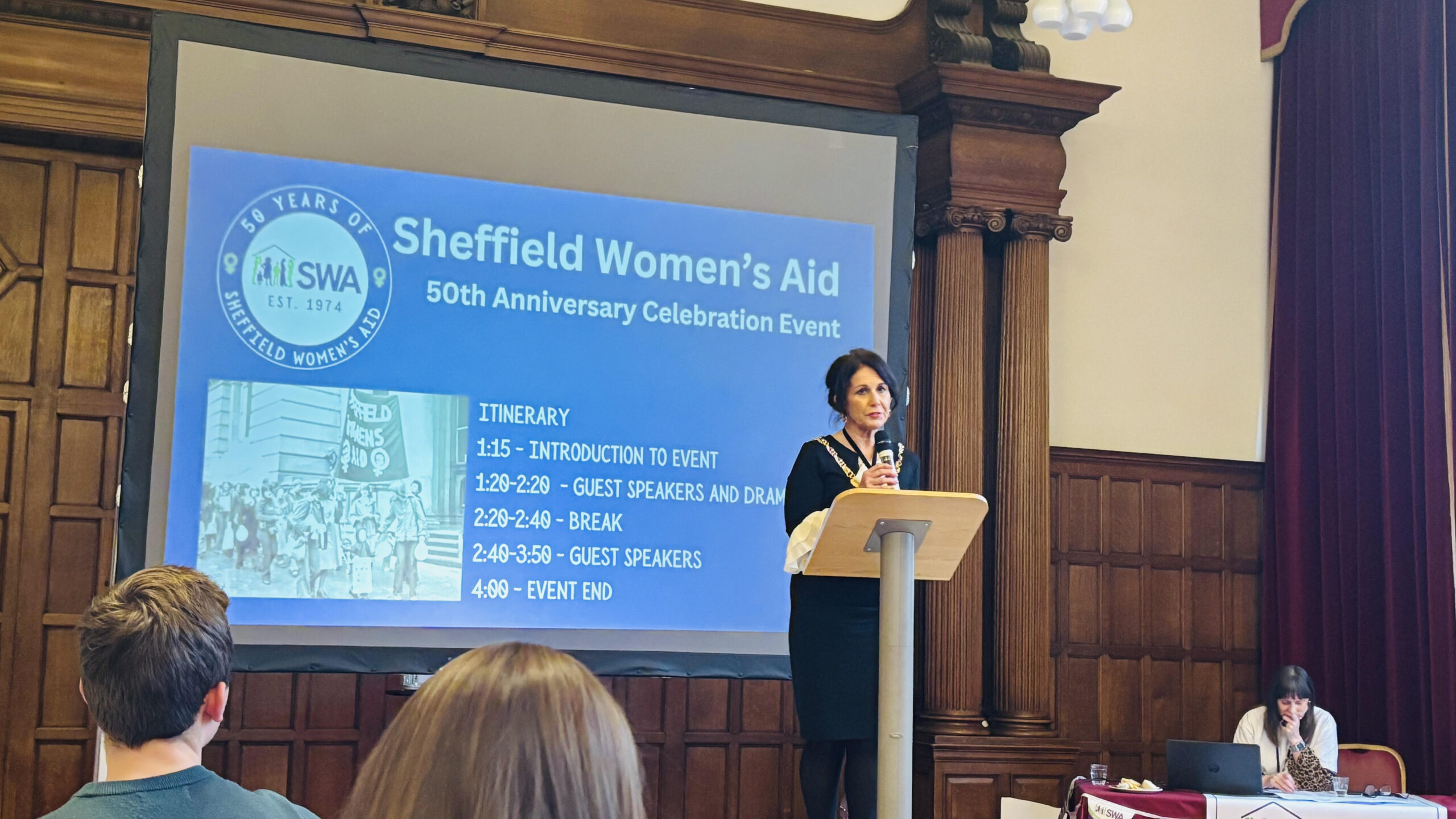For the last decade, the Rainbow Laces campaign has had a huge impact on LGBTQ+ visibility in football, but fears are growing about the future of the movement.
The campaign, organised by LGBTQ+ charity Stonewall, involves players wearing rainbow-coloured shoelaces on their boots, and captains wearing rainbow-coloured armbands, for all matches within a certain period each year in a show of support for the community. All 20 Premier League clubs have publicly supported the campaign, as well as many others from lower down the English league system.
There has been clear progress in LGBTQ+ inclusivity in football since the campaign began. In 2021, Australian player Josh Cavallo became the only active top-flight player in the world to come out as gay, and last year, Blackpool’s Jake Daniels followed suit, becoming the only active openly gay player in English football history.
Chris Ledger, the founder of Rainbow Owls, Sheffield Wednesday’s LGBTQ+ supporters group, praised the positive influence of the scheme over the years:
“The impact is absolutely enormous. If you go back just a few years, Robbie Rogers [a former USA international] came out as gay and felt like he couldn’t continue.”
“A lot’s changed in the last decade, in terms of visibility on the pitch.”
However, a report published by Stonewall to mark the campaign’s tenth anniversary revealed that true equality was still some way off. Only 33% of those surveyed felt that competitive sport is a welcoming environment for gay and bisexual sports personalities, while just 35% agreed that live sports events provide a welcoming environment for LGBTQ+ fans.
In fact, there are fears that attitudes towards the LGBTQ+ community at the highest levels of football are regressing. This year in particular, the Rainbow Laces campaign seems decidedly muted. A look at the social media comments of any football club or organisation that supports the campaign will still reveal dozens of homophobic comments, often with hundreds of ‘likes’.
Liz Ward, Director of Programmes for Stonewall, posted on X (formerly known as Twitter): “We’re facing a really scary backlash in men’s football, whilst other sports (cricket, rugby, etc) are more keen than ever to show their support.”
Moreover, The Athletic reported yesterday that the Premier League had halved its annual funding for Stonewall, which previously stood at over £100,000. Adidas, the biggest kit manufacturer in English football, has also significantly reduced the funding it provides to the organisation.

Asked about this issue, Mr Ledger said: “It’s concerning. I think one of the things that happened is last year it was moved from December to October to facilitate the Qatar World Cup, and so this year there’s been a bit of confusion about when it happens. Everyone needs to have that united stance, and to talk about things in the same way.”
Mr Ledger also expressed concerns about ‘sportswashing’ – the practice of using the mass appeal of sports to divert attention from wrongdoing.
“I think it’s a real shame that sportswashing continues to have this stranglehold on football at the highest level. Every month, or every two months, something comes up that these countries are adding to the game.”
“There’s a real sense of fickleness, like with how things have happened with Jordan Henderson [former Liverpool captain and outspoken supporter of LGBTQ+ rights who faced criticism after transferring to Saudi club Al-Ettifaq earlier this year].”
In particular, the governments of Qatar and Saudi Arabia, both of whom criminalise homosexuality, have had this criticism levelled at them by fans. Qatar hosted the 2022 World Cup, while Saudi Arabia was recently announced as the host of the 2034 tournament. Saudi Arabia’s sovereign wealth fund is also the majority shareholder in Premier League club Newcastle United.
Kian Ward, an LGBTQ+ football fan based in Sheffield told Sheffield Wire: “I’m really disappointed – it’s made me quite angry, with the World Cup last year in Qatar and now it’s going to another country where homosexuality is illegal and heavily frowned upon.
“These countries have these beliefs and that’s fine, but when the game’s trying to be inclusive and a large portion of football fans won’t be able to attend it’s a shame.”
This week, Sheffield United’s Anel Ahmedhodžić became the first Premier League captain for seven years to not wear a rainbow armband during the designated Rainbow Laces period. Neither club nor player have given a reason for this, and Stonewall were unavailable for comment.




